'I fear being a forgotten casualty of pandemic'
- Published
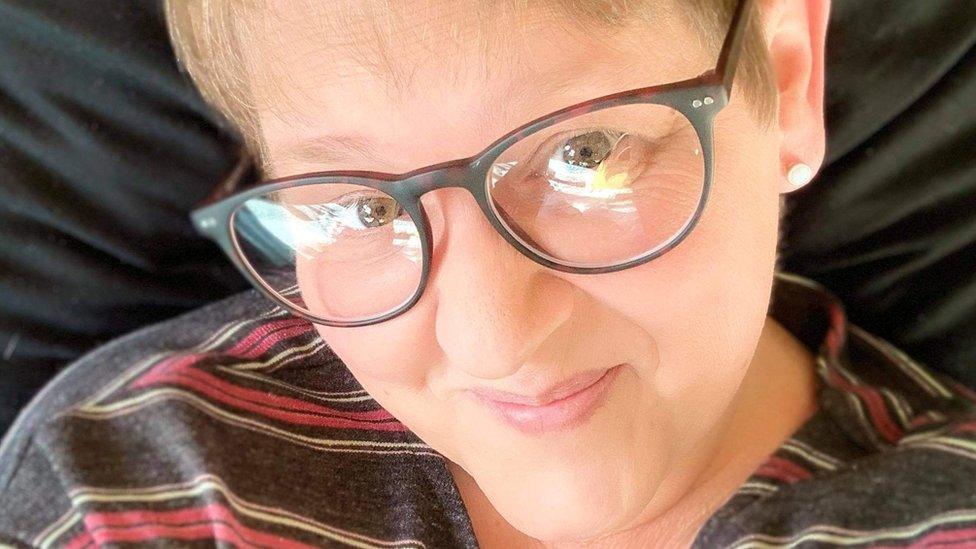
At the age of 49, Sarah Fisher feels her life is on a knife-edge.
She had a heart attack during lockdown and has subsequently been diagnosed with heart failure.
In July, she was told she needed to have an implantable cardioverter defibrillator (ICD) fitted, which can shock the heart back into rhythm when it detects a potential cardiac arrest.
But 12 weeks on, she is still waiting. "I could have a cardiac arrest at any point," Sarah says.
"It is awful not knowing what is going to happen.
"I am on the urgent list - but the infection rates are rising and the clinics are closing.
"I don't know when I will get it.
"There are so many people in my position - we don't have Covid but our lives are at risk too.
"We are the forgotten victims of this pandemic."
Sharp rise
British Heart Foundation analysis of Office for National Statistics data for England and Wales found almost 800 extra deaths from heart disease among under-65s from March to July - 15% more than would be expected.
The rate of death was highest during the full lockdown - but, worryingly, the trend continued afterwards.
The charity blames delays in people seeking care, as well as reduced access to routine tests and treatments.
And NHS England figures show a sharp rise in the numbers waiting over six weeks for a whole range of key tests, including echocardiograms for hearts.
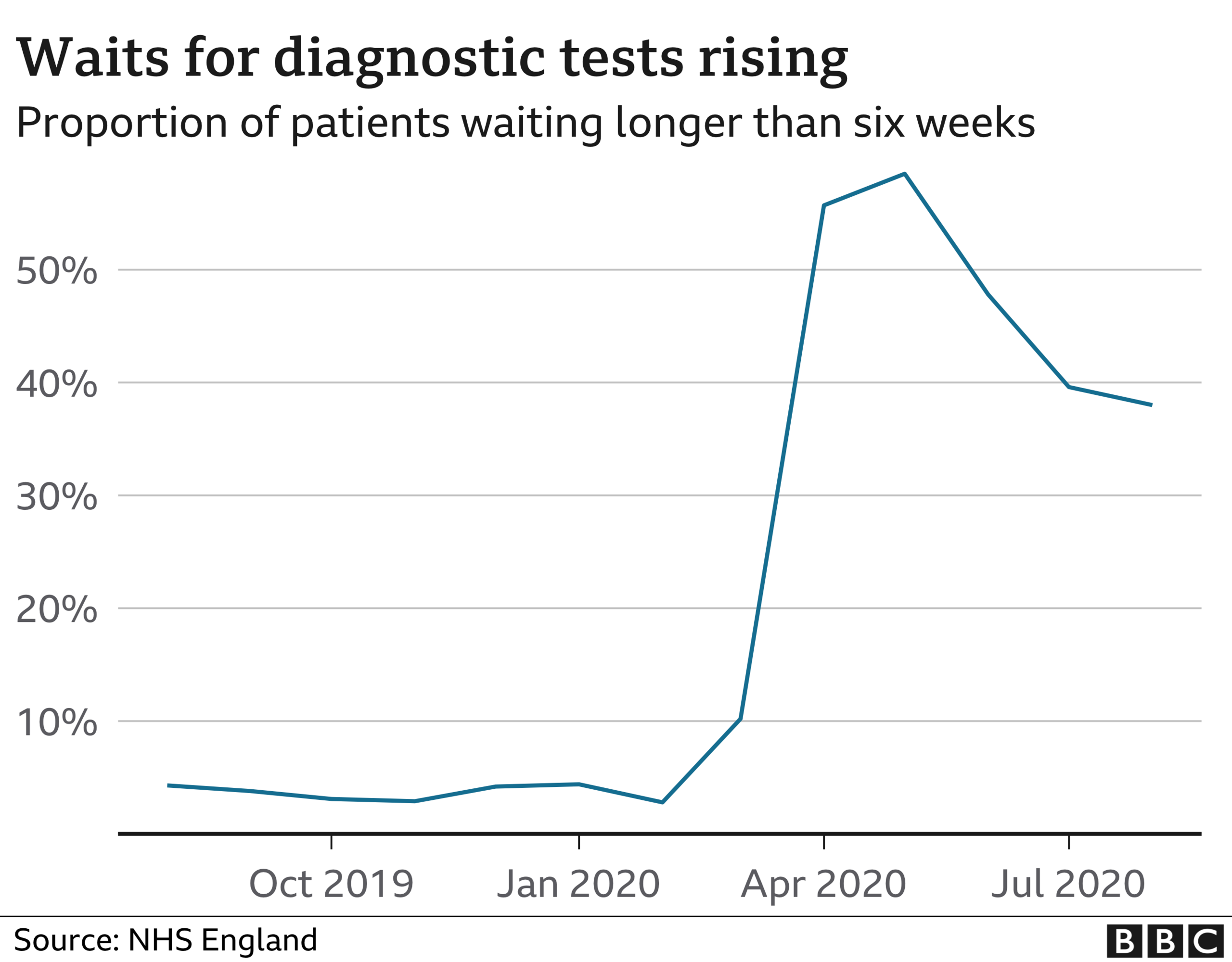

BHF associate medical director Dr Sonya Babu-Narayan says the consequences of the pandemic have been "tragic".
"Covid has put people with heart and circulatory conditions at greater risk than ever," she says.
And it is essential people seek help if they are worried about their health.
"Don't delay because you think hospitals are too busy," Babu-Narayan says.
"The NHS still has systems in place to safely treat you."
'Traumatic impact'
Heart disease is not the only condition affected. Similar warnings have been made by patient groups for other conditions.
Macmillan Cancer Support says a drop in referrals for urgent cancer check-ups, people starting treatment and the numbers being screened is threatening to have a "traumatic" impact on people's lives now and in the future.
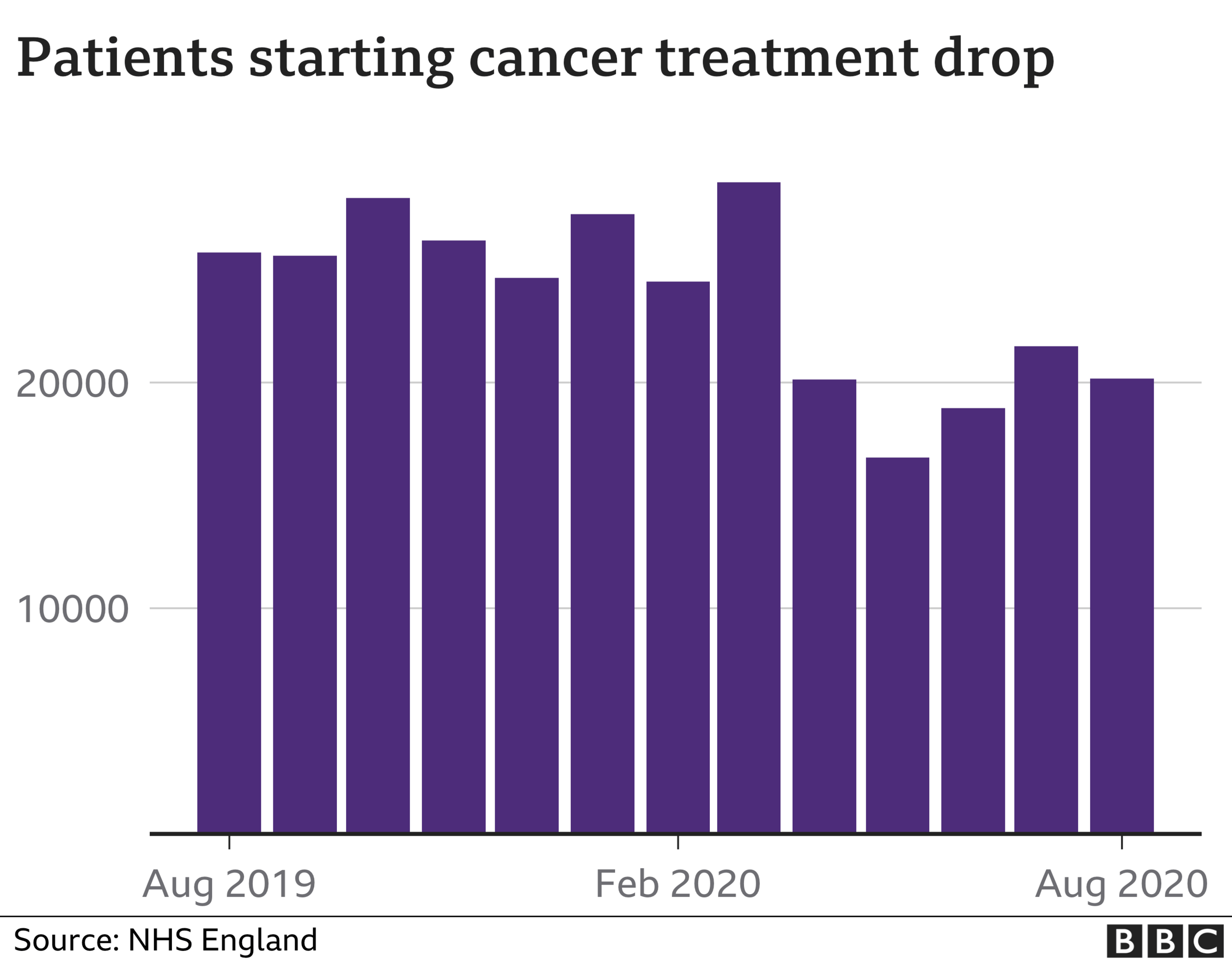

It is unclear how many lives have been lost for non-Covid reasons.
There were a total of 13,000 non-Covid excess deaths in England and Wales during the first eight weeks of the pandemic.
Since then, overall death rates have returned to close to normal.
But many more people than would be expected are still dying at home.
An extra 28,000 deaths in private homes have been recorded since the pandemic started, which is higher than the excess death toll in care homes.
And a third of them were in July, August and September, when Covid death rates were very low.
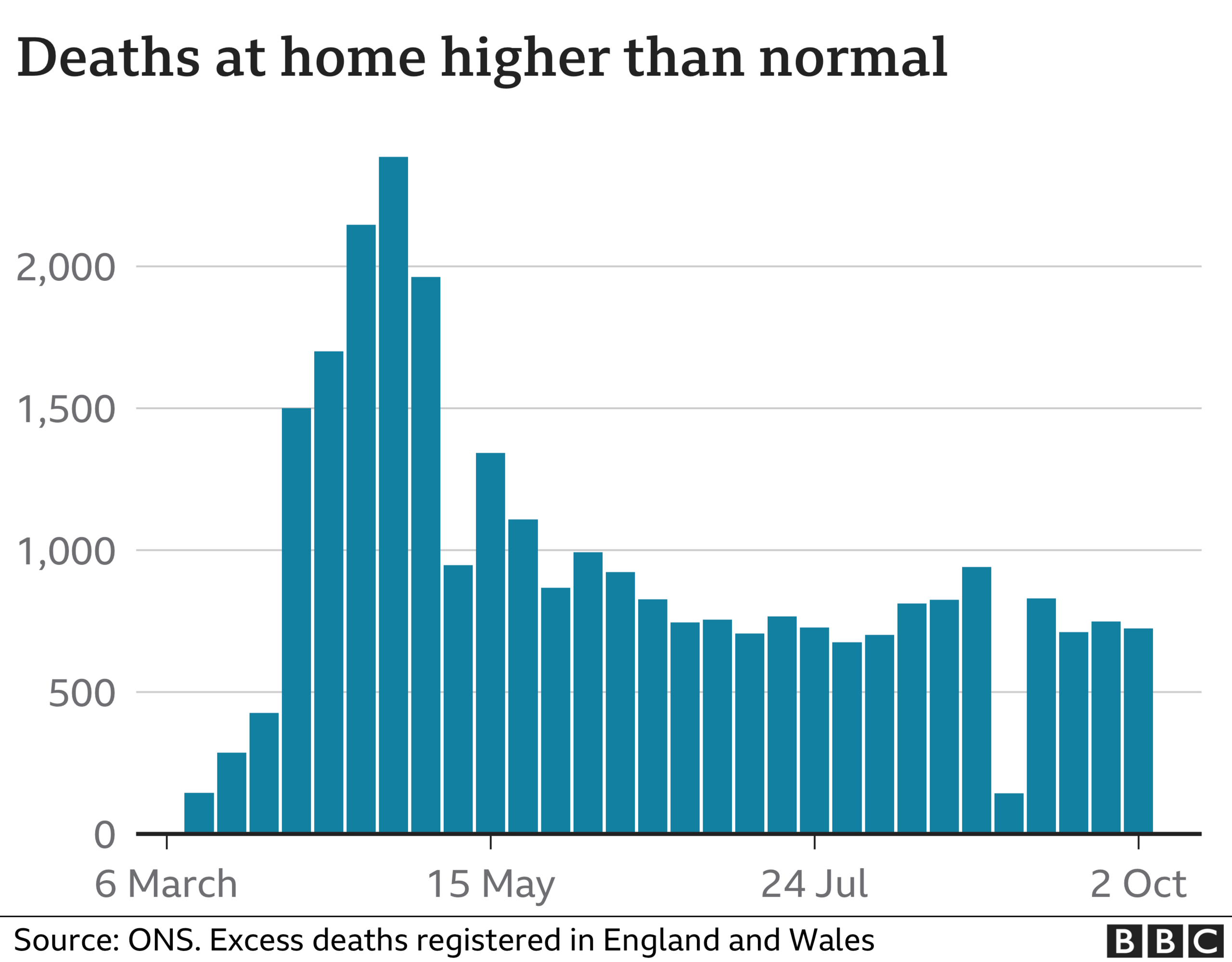

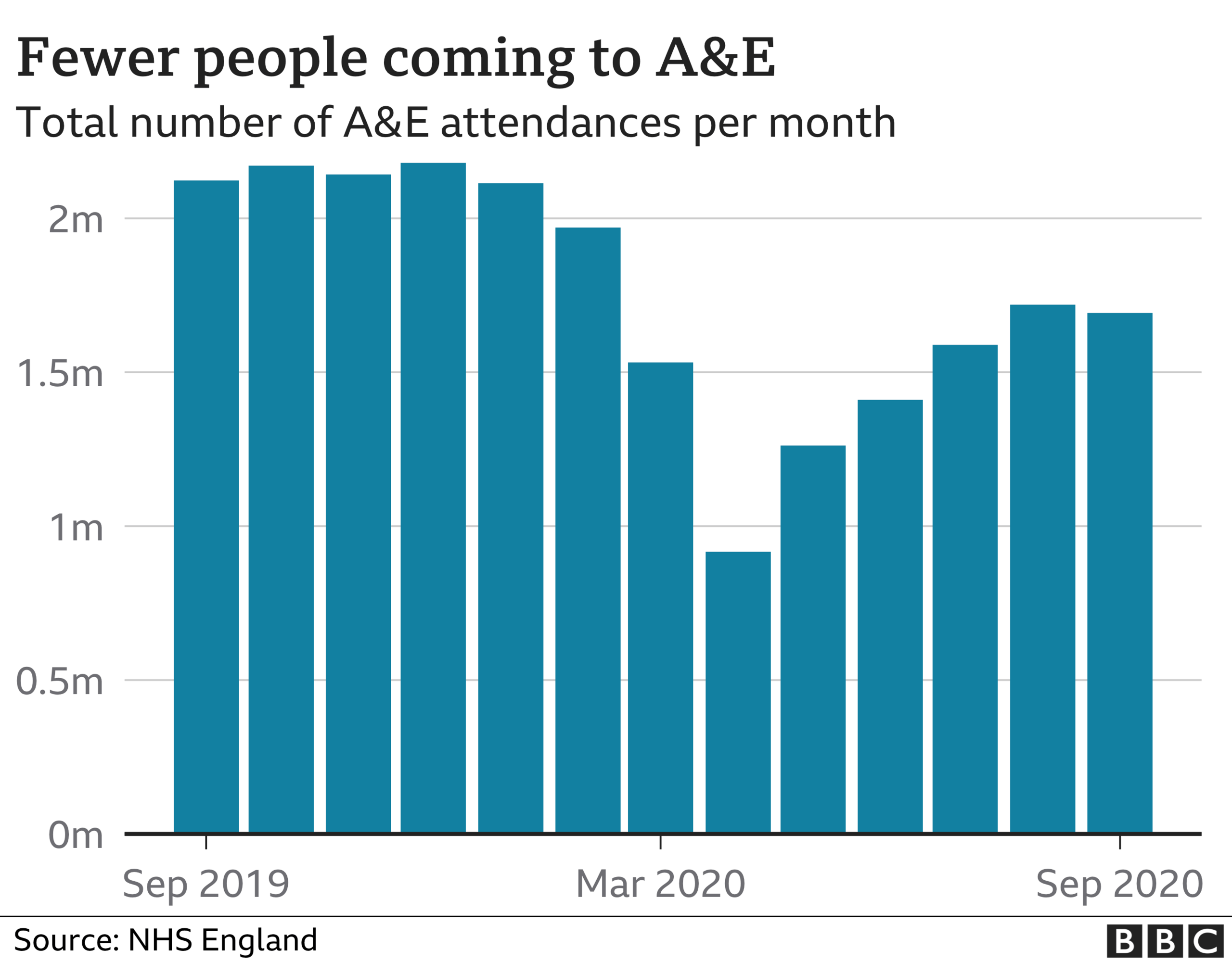

The Office for National Statistics is investigating the cause.
The numbers dying in hospital have been lower than expected in recent months, so it may just be people are choosing to die at home.
But the Nuffield Trust says it could also be a sign people are going without vital treatment.
The numbers attending accident-and-emergency units dropped by 50% in April and have still not recovered to normal levels.
- Published30 July 2020
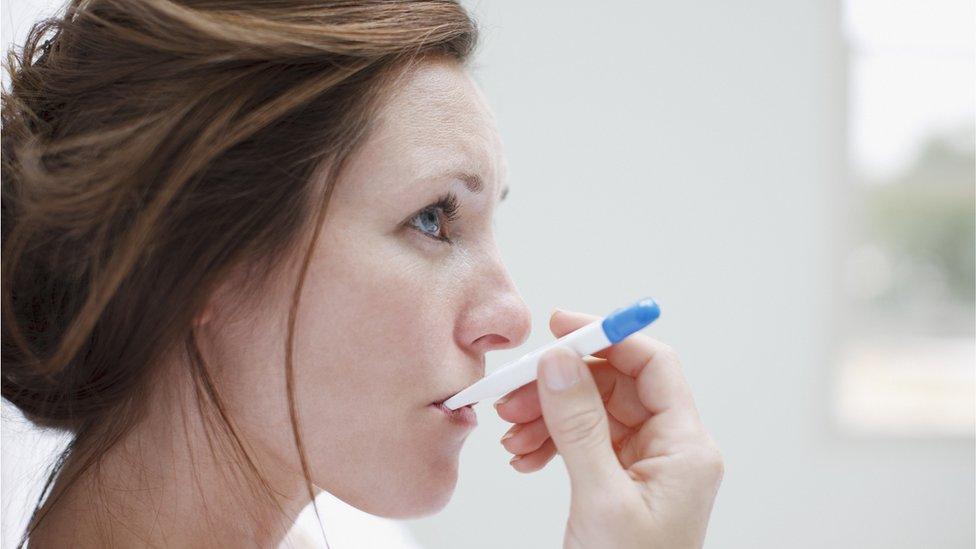
- Published29 July 2020